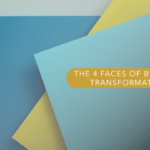I came across a news article about a growing menace in the city of Lagos, and the story reminded me of the Second Law of Thermodynamics. That Law states that entropy (disorder) increases in isolated systems over time.
It looks scientific, but this law shows up in practically every area of daily life. It’s the logic behind why everything left to itself deteriorates with time. Why ice melts, why sand castles disintegrate, why aging in humans results in reduced abilities, why fabrics get loose and shred, and why painting fades.
Extending this logic, it’s why beautifully built and commissioned infrastructure weakens, why public transport breaks down and becomes dilapidated, and why constructed roads develop potholes and become “unmotorable” over time. That’s what entropy looks like when it sets in. Entropy cannot decrease; it only increases as time passes. And the only way to reverse entropy is to travel back in time.
Where am I going with this quasi-science lesson, you may ask? It’s really to challenge my fellow citizens on the way our common approach to solutioning violates the Second Law of Thermodynamics.
Our standard answer to the societal and economic challenges shows this up. It’s “Elect the Right Candidate!”, “Build the Hospital!”, “Fix the Roads!”, “Sign the Law!” And a full stop right after that. What next after the Right Candidate, the Right Law, and the Right Infrastructure are in place? Not much else is added. It’s clear we fully assume these are enough to get us the transformation we desire. But that second Law tells us that can’t work.
The best implementations, if left to themselves, will deteriorate over time and get us back to where we started. This is a fact that every Nigerian who has watched the fanfare-filled commissioning of a new general hospital, a new public transport system, a new task force, or even a new administration can attest to. After a few years (months in some cases!), the effects of low maintenance start to show up.
The maintenance culture problem is a national problem. Tai Solarin once famously stated that the best you can ever see a house in this country is on the day of the housewarming ceremony. Things fall apart right after that. The fresh paint starts to chip and fade, door hinges get loose, windows and tiles crack or break and are not replaced, and light bulbs burn out and are left as they are. It is so normalized that we don’t think much as we drive over heavily pot-holed roads that were once brand new, pass dead street lights that once illuminated the streets, power on generators to back up an ailing municipal supply and pump water from private boreholes in cities with installed water systems.
Bringing all of this home. As a Transformation professional, I find one of the barriers to sustainable transformational change – in workplaces and in society – stems from underestimating the effort required to sustain the “brand new” system.





